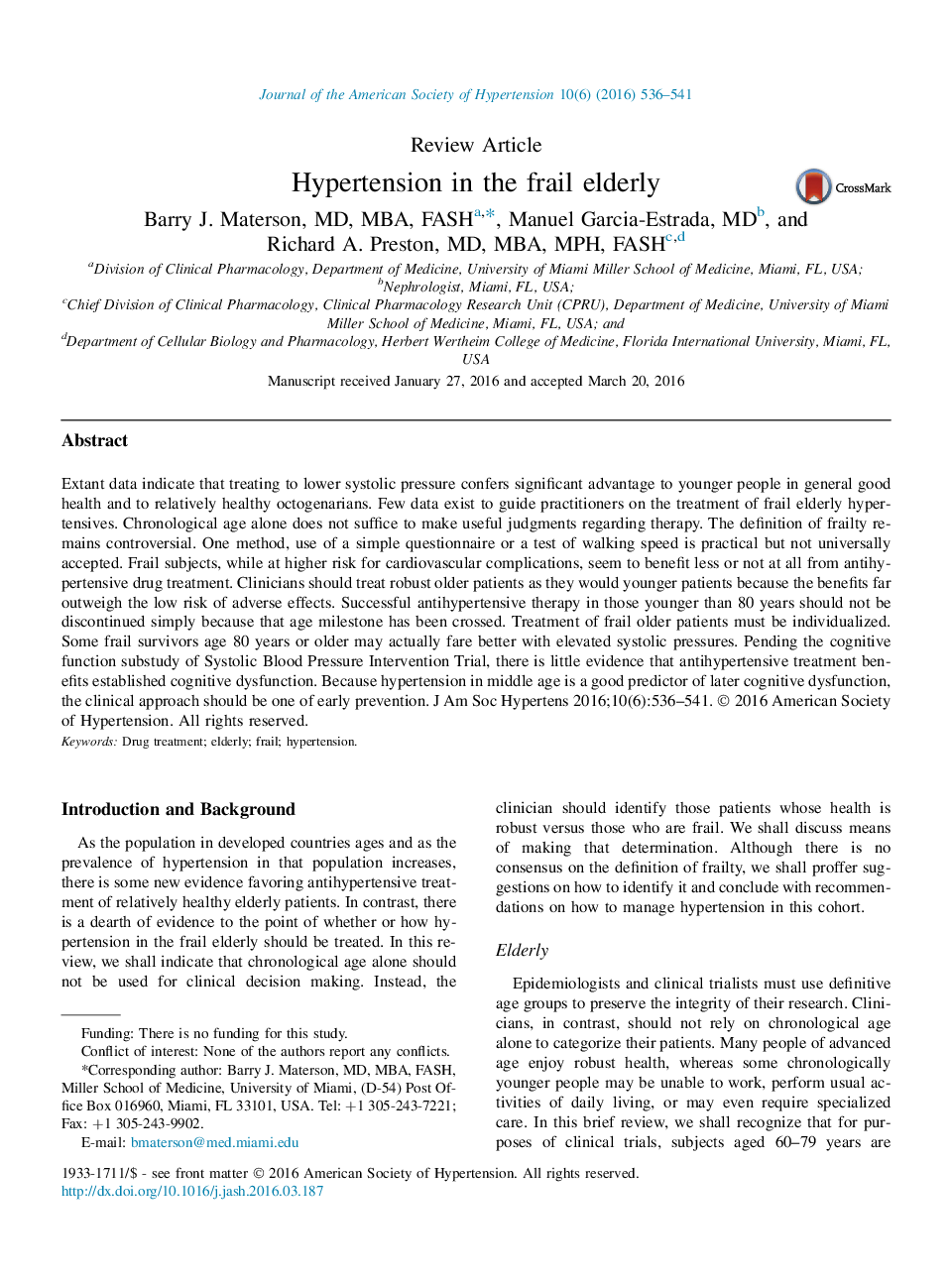| کد مقاله | کد نشریه | سال انتشار | مقاله انگلیسی | نسخه تمام متن |
|---|---|---|---|---|
| 2956134 | 1578023 | 2016 | 6 صفحه PDF | دانلود رایگان |
• Chronological age alone should not be a factor in the treatment or nontreatment of the elderly.
• Healthy hypertensive elderly with intact activities of daily living and cognition should be treated irrespective of their chronological age.
• Frailty does not have a consensus definition, but the FRAIL score and gait speed may be of help. These patients should have individualized treatment.
• Psychotropic drugs are far more likely to cause falls than antihypertensive drugs.
Extant data indicate that treating to lower systolic pressure confers significant advantage to younger people in general good health and to relatively healthy octogenarians. Few data exist to guide practitioners on the treatment of frail elderly hypertensives. Chronological age alone does not suffice to make useful judgments regarding therapy. The definition of frailty remains controversial. One method, use of a simple questionnaire or a test of walking speed is practical but not universally accepted. Frail subjects, while at higher risk for cardiovascular complications, seem to benefit less or not at all from antihypertensive drug treatment. Clinicians should treat robust older patients as they would younger patients because the benefits far outweigh the low risk of adverse effects. Successful antihypertensive therapy in those younger than 80 years should not be discontinued simply because that age milestone has been crossed. Treatment of frail older patients must be individualized. Some frail survivors age 80 years or older may actually fare better with elevated systolic pressures. Pending the cognitive function substudy of Systolic Blood Pressure Intervention Trial, there is little evidence that antihypertensive treatment benefits established cognitive dysfunction. Because hypertension in middle age is a good predictor of later cognitive dysfunction, the clinical approach should be one of early prevention.
Journal: Journal of the American Society of Hypertension - Volume 10, Issue 6, June 2016, Pages 536–541
